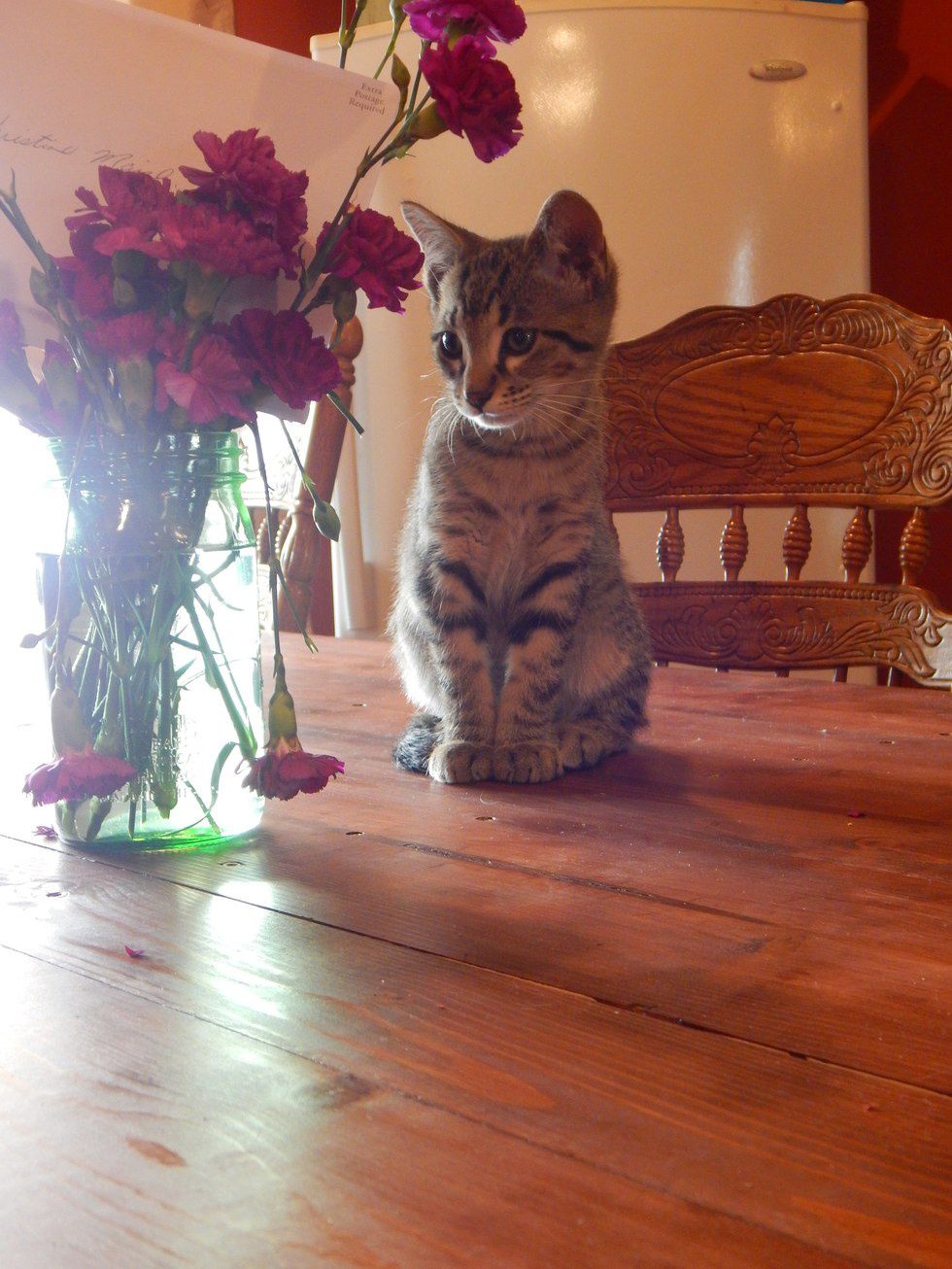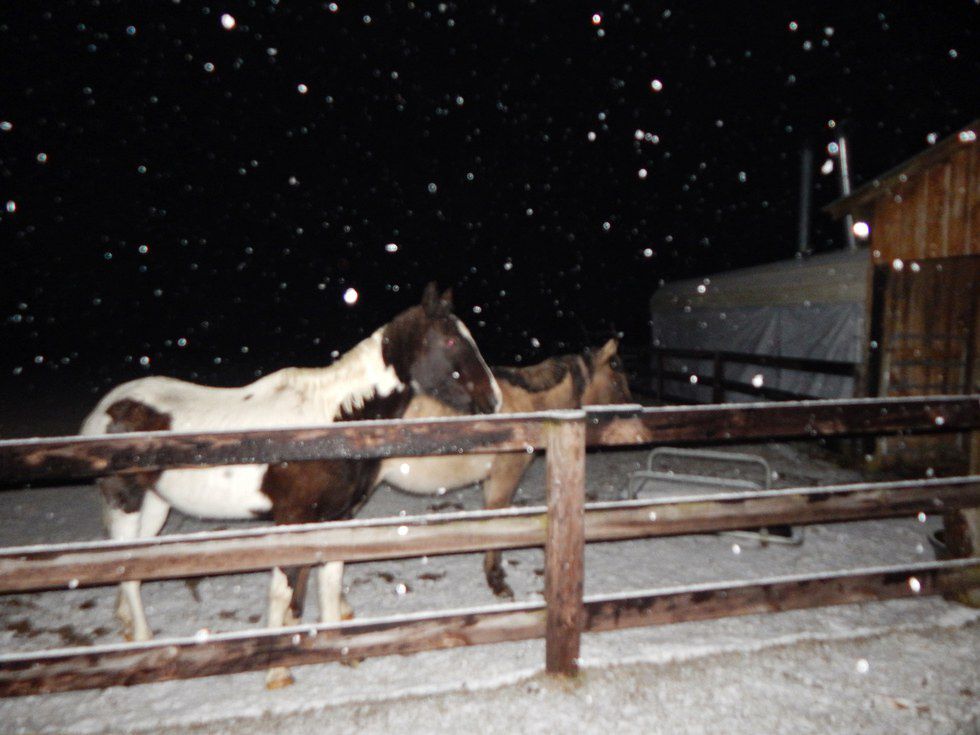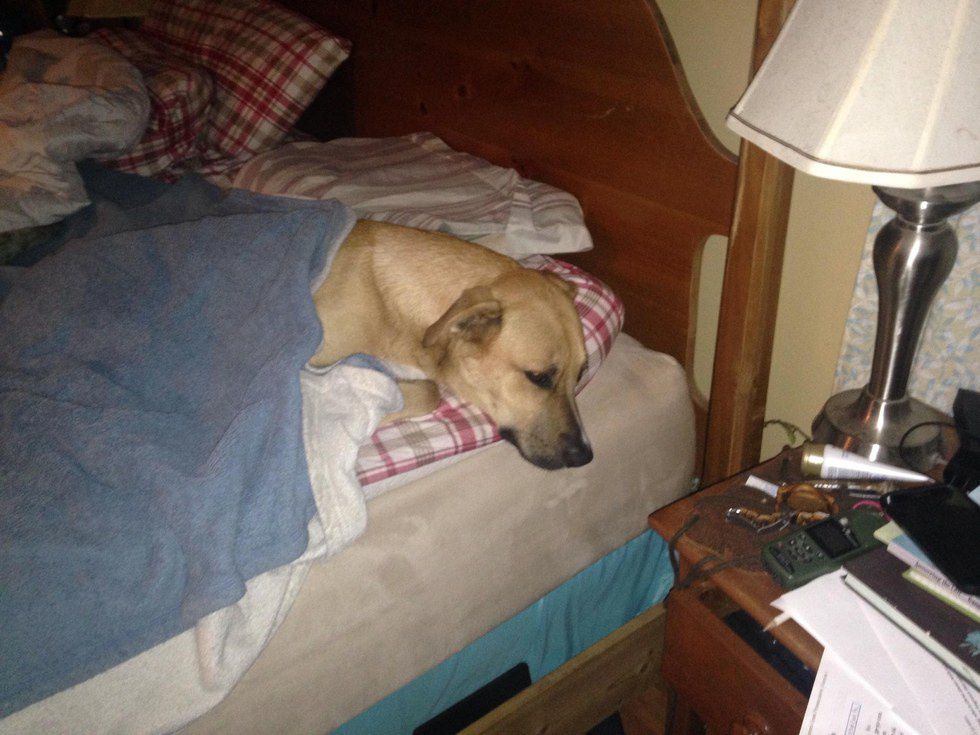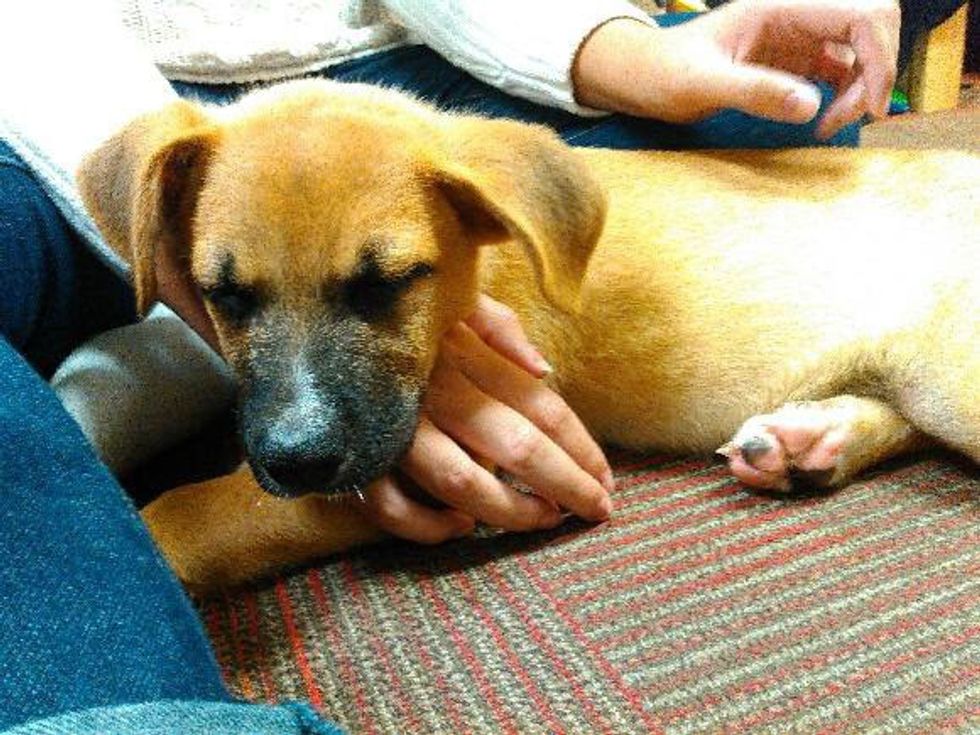Welcome back
Sign in to comment to your favorite stories, participate in your community and interact with your friends
or
LOG IN WITH FACEBOOKNo account? Create one
Recommended for you
Report this Content
This article has not been reviewed by Odyssey HQ and solely reflects the ideas and opinions of the creator.
Subscribe to our
Newsletter
Student Life
25 Thoughts Everyone Has When Registering For Classes
May the odds be ever in your favor.
5h
81
University of Nebraska at Omaha
Creating your schedule for the upcoming semester can be an exciting process. You have the control to decide if you want to have class two-days a week or five-days a week. You get to check things off of your requirement checklist. It's an opportunity for a fresh start with new classes (which you tell yourself you'll never skip.) This process, which always starts out so optimistic, can get frustrating really quickly. Here are 25 thoughts you have when registering for classes.
1. Wow, time to sign up for classes already!
2. Alright, one semester closer to graduation. Let's do this.
3. I already know exactly what I'm gonna take.
4. Ugh, I have an advising flag on my account.
5. Okay, no problem. I'll just email my adviser about getting it removed.
6. In the meantime, I'll add all my classes to my cart.
7. I'm only going to schedule myself for Tuesday/Thursday classes. I'll have so much extra time to be productive!
8. Why are all the classes I need for my major scheduled at the most inconvenient times?
9. I mean, I guess having a three-hour night class on Wednesday isn't the worst thing in the world.
10. Just kidding, I am already dreading it and it's still months away.
11. Alright, get it together. This is what being a responsible adult is about.
12. Oh wonderful. That class is already wait listed.
13. Maybe I should check Rate My Professor real fast.
14. On second thought, maybe I'll wait on that class until it's offered with a different professor.
15. I really shouldn't sign up for an 8 a.m.
16. And it's only offered at 8 a.m.
17. I'll be fine. I'll just have to keep myself motivated to go to class.
18. I feel like there should be an easier way to do this.
19. It's like they're trying to make us regret all our life choices.
20. I can handle 18 credits, right?
21. What am I gonna do for three hours between these classes?
22. This is literally the most inconvenient and unorganized class schedule in existence.
23. Whatever, I'll just use that break to study.
24. Now I just have to pray these classes don't fill up before my enrollment appointment.
25. Thank goodness I don't have to do this again for another six months.
Keep Reading...Show less
Student Life
10 Thoughts Of A 5th Year Senior
What about those of us who don't do it all in four years?
12h
661
pointsincase.com
"College will be the best four years of your life" is a phrase that we have all heard growing up. College is painted as a magical place to us while we are in high school. A place you go to learn, meet your best friends and probably have the time of your life while all of this is going down. Four whirlwind years, where everything that you've known changes and you start to learn what it means to live on your own, have a job, etc. But what about those of us who don't do this all in four years? Major changes, hard courses, switching schools, career paths changing, these are just a handful of factors that could extend your four years to five, six or seven. There is nothing wrong with taking extra time to graduate, but returning as a fifth-year is a little different. Most of your best friends have most likely graduated and moved and while you may be one of the oldest undergraduates on campus, you might feel as awkward as a freshmen. A world that became home and comfortable to you is still there but it's slightly different than you've known it to be and you have to find a groove to fall into. These are thoughts you'll have as you look ahead to returning to your college campus, with a victory lap planned.
1. You feel like an elder.
When you started college at 18 you probably thought you were SO old. Now at 22 or 23 you realize that you still are not "old," but you are to the 19-year-old that may pop up in your classes. You seem like a grandparent to them, and no I will not buy you your alcohol or help you find a fake ID.
2. You may feel lonely.
Sure, you still have friends on campus. But your "squad" is no longer all there. You go from Thursday night pre-games and 2-for-1's to Skype dates to try to stay connected with all your friends. On a positive note, you are likely going to make new friends with other people who are in the same stage of life as you.
3. Senioritis is more real than ever.
You thought you had it rough this last year, yet this year you are more ready to graduate than ever. But, the real world still scares the hell out of you and you are low-key happy you had an extra semester or two to prepare.
4. You may feel a little down sometimes.
When you see your friends moving all over the country you may feel a little down as you realize you are doing the same thing you have been doing for the last four years. But it is important to remember that it is completely normal to not graduate in four years and you can do even more things to help prepare you for the next phase of your life.
5. Fear of missing out won't be as real.
At least in your college town, most things that are going on with your campus are going to be things that you have already done before. So, on nights you would rather lay in bed than go downtown, the FOMO will probably be much more toned down.
6. You are a college pro.
On the plus side of being a fifth year, you've got this whole thing down. You know the ropes of college: how to study, how to get in with your teachers, where to go on what nights. This is all old news to you and you've got everything down to a science.
7. You'll have more free time.
Sure, you can still be involved but odds are your social calendar just really opened up, AKA no more events you are going to be fined for if you don't go to. With all this extra time maybe you'll get a job or maybe you'll lay in bed. Ultimately, it is your choice.
8. You're happy you're still in school.
Every time you get on Facebook you see so-and-so from high school getting married, having children, etc. And while you're happy for them, you're happy being single and not having that responsibly and being in college an extra year doesn't sound so bad anymore.
9. You feel like a guru.
Odds are people in your classes will know you are a fifth year and know that you pretty much have the campus figured out so you are going to have to answer questions about where the best spots to study are, where to go for game days, etc. You may get annoyed answering questions, but you're still happy you've got the lowdown on everything.
10. You continue to grow.
You are going to learn more about yourself and for the first time since you came to college as a confused, excited and scared freshman you are going to have to get out of your comfort zone a little and make sure to make your (hopefully) last year your best year yet.
Keep Reading...Show less
Entertainment
17 Times "Friends" Accurately Described Life
You can't say that no one told you life was gonna be this way.
14h
46
In the 12 years since it went off the air, "Friends" continues to be adored by millions. The show that gave generations unrealistic expectations about love (or should I say lobsters?) and New York City apartments had a charming cast of characters that everyone could relate to at some point or another. Here are 17 times Ross, Monica, Joey, Chandler, Phoebe and Rachel accurately described life.
1. When dealing with people is too difficult.
2. When food is the best part of your day.
...you can't ever say no to it
3. When you meet new people.
4. When you're the third wheel.
5. When life is tough but you're trying to hold it together.
6. When you're the brunt of a joke.
7. When you're too broke for food.
8. When your judgment could be better.
9. When you're not great at socializing.
10. When honesty is the best policy.
11. When you accept your flaws.
12. When work is not going well.
13. When you skip the gym.
14. When you over think.
15. When you swipe right.
16. When you get a crush.
17. When no major life event is happening
Keep Reading...Show less
Entertainment
11 Times Aubrey Plaza Described Sophomore Year
"I don't want to do things. I want to do not things."
17h
419
Flickr Creative Commons
Aubrey Plaza is one of my favorite humans in Hollywood. She's honest, blunt, unapologetic, and hilarious. I just started my sophomore year of college, and found that some of her best moments can accurately describe the start of the school year.
1. When your advisor tells you that you should declare a major soon.
2. Seeing the lost and confused freshmen and remembering that was you a short year ago, and now being grateful you know the ins and outs of the campus.
3. Going to the involvement fair to sign up for more clubs knowing that you are already too involved.
4. When you actually do the reading required for the first class.
5. Seeing your friends for the first time since last semester.
6. When you're already drowning in homework during syllabus week.
7. Realizing you don't have the same excitement for classes as you did as a freshman.
8. Going home and seeing people from high school gets weirder the older you get.
9. You've already established your de-stress routine.
10. Wondering where all the new freshman came from.
Que What GIFfrom Que GIFs
11. But ultimately being glad that you have a lot more knowledge than you did a year ago.
Keep Reading...Show less
Things you may not realize are different between high school and college:
No one cares if you wear pajamas to class
Wearing the biggest t-shirt and fuzziest socks you can find is basically the newest trend.
You don't live with mommy anymore, say hello to cereal and Ramen Noodles
Giphy
You gotta do what you gotta do.
Curfew? Never heard of her.
Giphy
No you don't have a curfew anymore, but nothing good happens past 2am.
Everything said in class is most likely posted online
Giphy
No need to email your professor that you're "sick", most professors will post all their lecture slides online.
The realization that you need your pet now more than ever
Giphy
I only love my bed and my puppy I'm sorry
Exams are worth way more than participation points
Giphy
An exam worth more than 20% of your final grade? Thats outrageous!
The library is now your new best friend
Giphy
You're only a loser if you DON'T know where the library is
You don't live with your mom anymore... call her
Mom, I love you.
Keep Reading...Show less





























